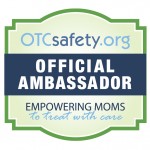 Spring is here and with all the beautiful blooms and warm days comes the tree and grass pollen (the most common Spring allergy triggers). Combine that with the wind and kids spending more time outside and unfortunately, what you get are an uptick in your kids’ allergy symptoms.
Spring is here and with all the beautiful blooms and warm days comes the tree and grass pollen (the most common Spring allergy triggers). Combine that with the wind and kids spending more time outside and unfortunately, what you get are an uptick in your kids’ allergy symptoms.
While some kids will only have mild symptoms, others can become quite debilitated dealing with the sneezing, itchy eyes/noses, nasal congestion, and coughing.
Seasonal allergies (aka allergic rhinitis or hay fever) can significantly interfere with a child’s quality of life and daily activity. Poor sleep because of the allergies can cause daytime fatigue and malaise. Symptoms of ADHD can appear and your child may have poor concentration, decreased academic performance, and/or decreased athletic performance.
So, diagnosing, preventing, and treating seasonal allergies is crucial in keeping your child healthy.
Some facts about seasonal allergies:
- They are rare before age 2. It takes a couple of years to become sensitized to particular allergen.
- They usually appear by age 10, but can start at any age. Peaks during young adulthood.
- Up to 50% of patients with asthma also have allergic rhinitis. So allergen avoidance becomes even more critical for asthma sufferers.
- They are caused by the body’s reaction to specific “allergens” (e.g. tree pollen, grass, mold, etc.) causing the immune system to treat these allergens as foreign substances.
Signs and Symptoms of Seasonal Allergies:
- The symptoms of seasonal allergies can initially mimic the symptoms of a common cold with runny nose, congestion, and sore throat. But you should suspect seasonal allergies if your child’s symptoms persist beyond 10-14 days (the time frame when viral colds should resolve.)
- Seasonal allergies typically have a sudden onset of runny nose (clear), nasal congestion, itchy/water eyes, itchy nose/throat, and cough with persistent throat clearing.
- Itching is the hallmark of seasonal allergies.
- Recurrent symptoms during change of seasons (i.e. every Spring.)
- Allergic shiners (dark discoloration beneath eyes/creases beneath eyes), allergic salute (horizontal crease across top of nose), and watery eyes are all visible signs of seasonal allergies.
- In addition to these symptoms and signs, your child’s doctor can look for other signs of seasonal allergies on physical exam. If you hear the terms “cobblestoning” and “enlarged, pale turbinates”, your child’s doctor is confirming the presence of some of the other signs of seasonal allergies that you might not be able to see.
Some children with severe and/or persistent symptoms may need to see an allergist and have special skin or blood tests performed to help in narrowing down the diagnosis and implementing more directed therapeutic care (such as specific allergen avoidance and possibly allergy shots.)
Treatment and Prevention Tips for Seasonal Allergies:
- While there is no cure for seasonal allergies, prevention in the form of allergen avoidance and symptom control are the mainstays of treatment.
- Reduce or eliminate exposure by keeping windows closed in your home and car; and using the AC instead. This is especially important on days with high pollen counts.
- Keep in mind that pollen counts are highest in the morning on dry/windy days.
- Check local pollen counts and aim to keep child indoors on those days if possible. Or, at the very least, limit your child’s outdoor time during those days.
- Have your child wash her hands, shower, and change clothes when coming indoors after some time spent outside. Pollen sticks to hair, skin, and clothing. So be sure to wash bedding and linens frequently too.
- Leave shoes at the door so pollen doesn’t get tracked in to carpet and furniture.
- Medications can definitely help. Antihistamines, nasal steroid sprays, and eye drops will help in alleviating your child’s bothersome symptoms. Work closely with your child’s doctor to find the best combination of medications that gives your child the best relief. And remember, dosing is different for children than adults. Never give your child an allergy medication that you are taking without checking with your child’s doctor first.
- Allergy shots: this is immunotherapy aimed at desensitizing an individual to a particular allergen. This is not generally recommended for children less than 5 years old. This is for kids whose prevention/treatment measures fail to provide lasting relief and their allergies continue to interfere with their quality of life.
So if your child suffers from seasonal allergies, first know that you are not alone (up to 30% of all people in the US suffer from them). And second, know that you can help your child minimize his symptoms so he can get back to doing what children do best: playing/exploring/learning in the great outdoors.
More reading on seasonal allergies:
Outdoor Allergens: Tips to Remember from American Academy of Allergy, Asthma, and Immunology
Pin It







